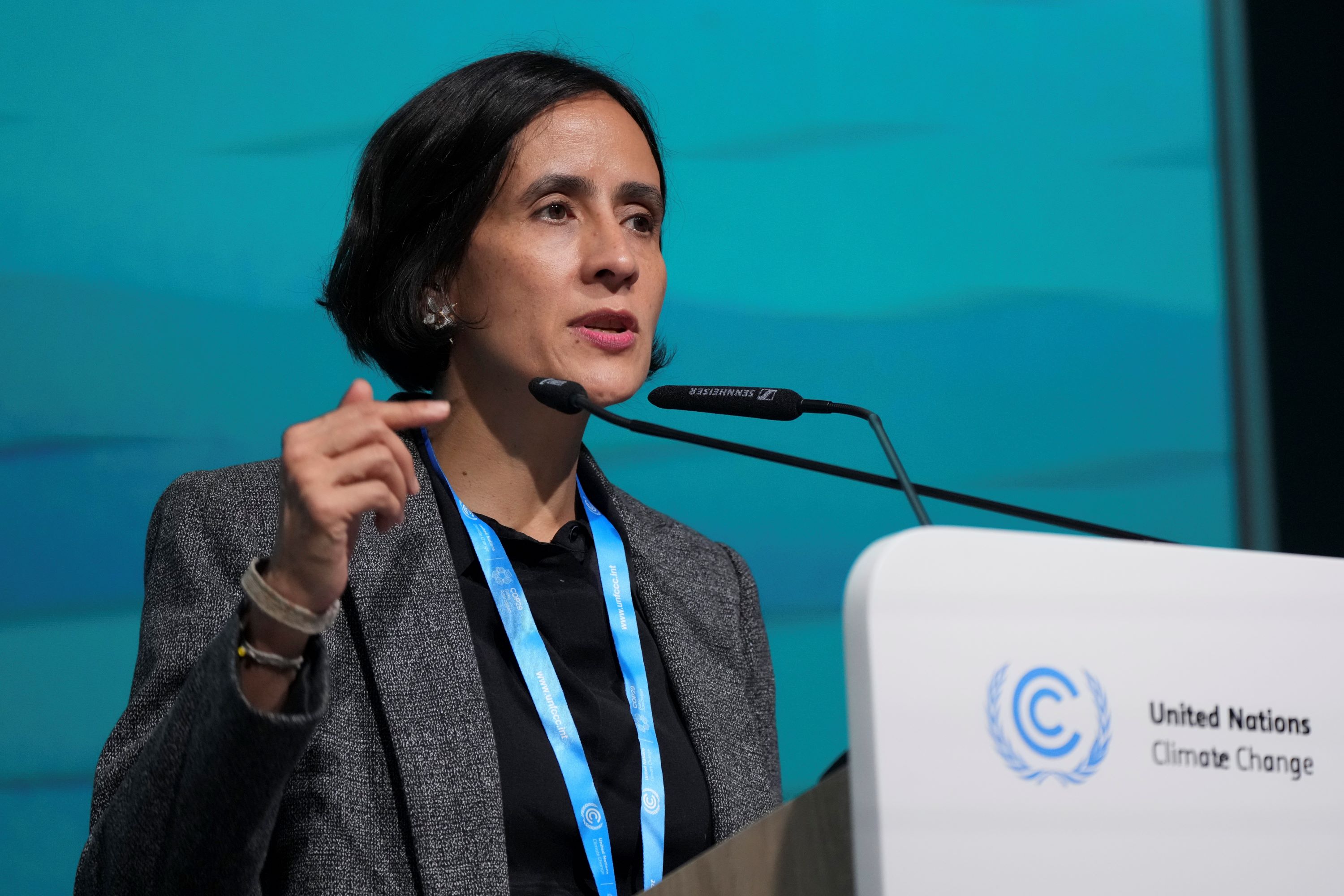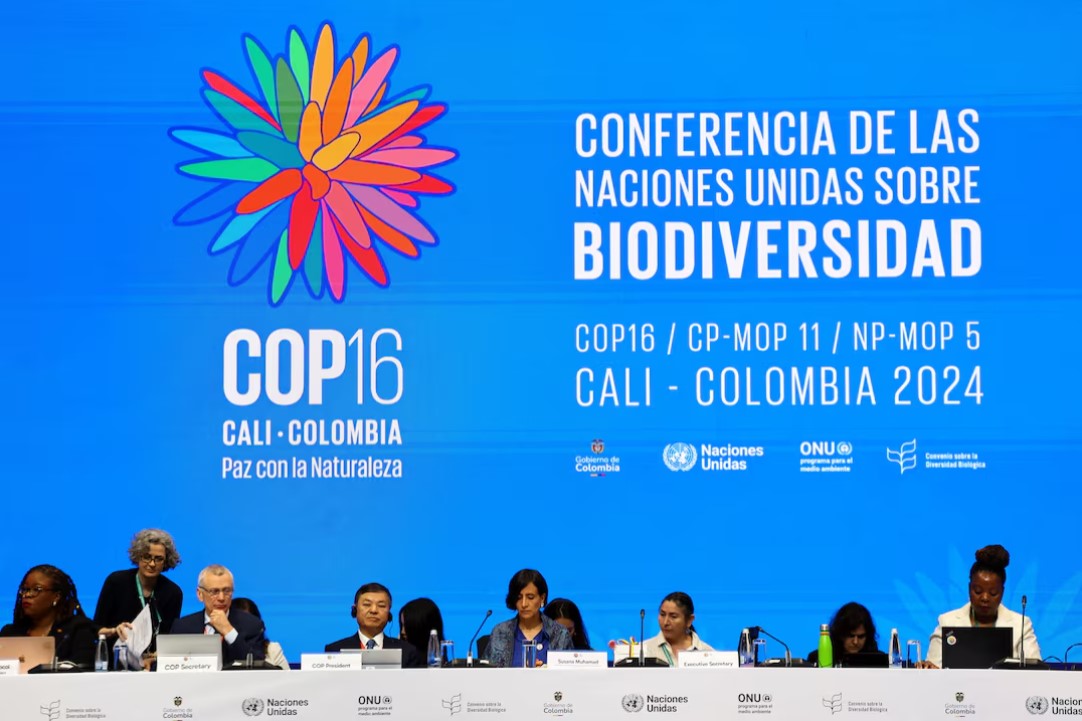
Global biodiversity talks that collapsed in November will resume Tuesday in Rome, with delegates from about 150 nations expected to try to smooth over differences and agree on how to advance toward 2030 targets to halt catastrophic nature loss.
The 16th United Nations Biodiversity Conference, COP16, held in Cali, Colombia, ended abruptly after countries disagreed in overtime talks about the creation of a new global nature fund.
Negotiators will now race against time to agree on how best to collect and distribute the funds necessary to implement the goals of the Kunming-Montreal Global Biodiversity Framework, a landmark nature pact adopted in December 2022.
ALSO READ: COP16 nature summit creates permanent body for Indigenous peoples
Failure to reach consensus in Rome would leave the pact “handicapped,” Susana Muhamad, Colombia’s outgoing environment minister and the president of COP16, said in an interview. “We don’t yet have the institutional and financial architecture that could allow us to achieve it.”
Muhamad tendered her resignation from Colombian President Gustavo Petro’s cabinet earlier this month, citing concerns about new government appointees. She will continue as COP16 president until after the conclusion of the Rome talks, according to a spokesperson for the secretariat of the UN Convention on Biological Diversity.
With budgets under pressure globally, governments have turned to the private sector to help plug the $200 billion-a-year gap in funding for nature. But financial institutions have stressed that they cannot — and will not — act to address nature loss without clear government guidance and profitable opportunities. It is an “unproven premise” that private financial institutions “can directly and materially influence nature-positive economic outcomes,” the Institute of International Finance, the industry’s global body, said in a January statement.
READ MORE: COP16 ends with historic recognition of indigenous, Afro-descendant communities
After the Cali talks foundered, Muhamad and her team spent November and December consulting regional negotiating groups on possible points of compromise. She’s since held one-on-one meetings with ministers in a bid to achieve high-level political support, she said. She said she hopes that “at least a group” of those ministers will turn up in Rome, but declined to name who she expects to attend.
Through the Kunming-Montreal pact, almost 200 countries agreed to reverse the steep global drop in biodiversity by the end of the decade and to come up with hundreds of billions of dollars to do so. Wildlife populations have declined by almost three-quarters since 1970, according to WWF.

COP16 — the first gathering of nations since the pact was signed — scored some notable wins. Countries agreed to move forward with a new financing vehicle, to be paid into by companies that sell products, such as pharmaceuticals and cosmetics, based on genetic data from the natural world. Agreements were also struck on a global action plan on biodiversity and health and to secure a permanent place for Indigenous peoples and local communities in the Convention on Biological Diversity.
ALSO READ: World's captive panda population hits 757
The talks fell apart, however, on the question of how to raise and distribute more money to help countries protect nature. Developing nations arrived in Cali with a demand to set up a new fund overseen by all 196 parties to the Convention on Biological Diversity. They see the current Washington, DC-based Global Environment Facility’s Global Biodiversity Framework Fund, whose mandate expires in 2030, as dominated by rich countries that control the purse strings.
“We need to see a more open door” from developed countries, said Maria Angélica Ikeda, who is leading Brazil’s delegation in Rome. “We are ready to make adjustments, but we need assurances that we will really have a dedicated fund for biodiversity.”
Developed countries, meanwhile, refused to accept a new fund, arguing that it would further fragment the biodiversity finance landscape and ultimately not amount to any new cash. The Cali negotiations were deadlocked before Muhamad suspended proceedings for lack of a quorum as delegates rushed to catch flights home.
READ MORE: Conservation is a family matter
“There is a very real divide” to be bridged, said Nina Seega, director of the Centre for Sustainable Finance at the UK’s Cambridge Institute for Sustainability Leadership. “The speed and the quantum [of fund disbursement] are really important,” she said, but “trust needs to be built”.
Negotiators at what’s been dubbed COP16.2 have three days to hash out a new strategy to mobilize the funds needed to deliver on the global pact. They’re also tasked with setting up a system to monitor and report on progress toward its targets.
Muhamad says the main goals in Rome are that countries agree to a financial instrument to fund nature protection that is overseen by all 196 parties; finalize a set of criteria to underpin it; and develop a roadmap to build it between now and 2030.
“I am trying to work so that all parties open up,” Muhamad said. That requires developing countries “to not predefine exactly what the financial mechanism is, but to allow a process to build it”. Rich nations, for their part, need “to be flexible that we actually do need new institutional architecture, and that there is a possibility that creating something could create a win-win for everybody,” she said.
“It’s a lot of sweating and hard work in this very difficult geopolitical world,” Muhamad said.
READ MORE: Chinese energy companies call for more biodiversity conservation efforts
The US isn’t a party to the convention and therefore cannot directly influence the talks. President Donald Trump’s decision to freeze overseas aid is likely to impact some biodiversity-focused projects, Muhamad said. Trump has quashed a major report on the state of nature in the US, and Colombia has had to go back to the drawing board on its $40 billion climate investment plan since he returned to the White House.
Still, Muhamad said she met with Trump administration officials during her trip to Washington last month and identified some areas that the US is prioritizing that could help advance the global pact — for example, policies focused on clean air and water.
The Rome gathering will be much smaller than the Cali event, with about 1,800 registered participants expected. Unlike most COPs, which host trade fair-like events open to the public alongside the formal proceedings, COP16.2 will be limited to the latter with no official side events.
ALSO READ: World lags on 2030 nature goals headed into UN COP16 talks
Banks and investors are planning to take advantage of the gathering to attend informal side events, including one run by the UN Environment Program on how countries can design an investible national biodiversity plan.


